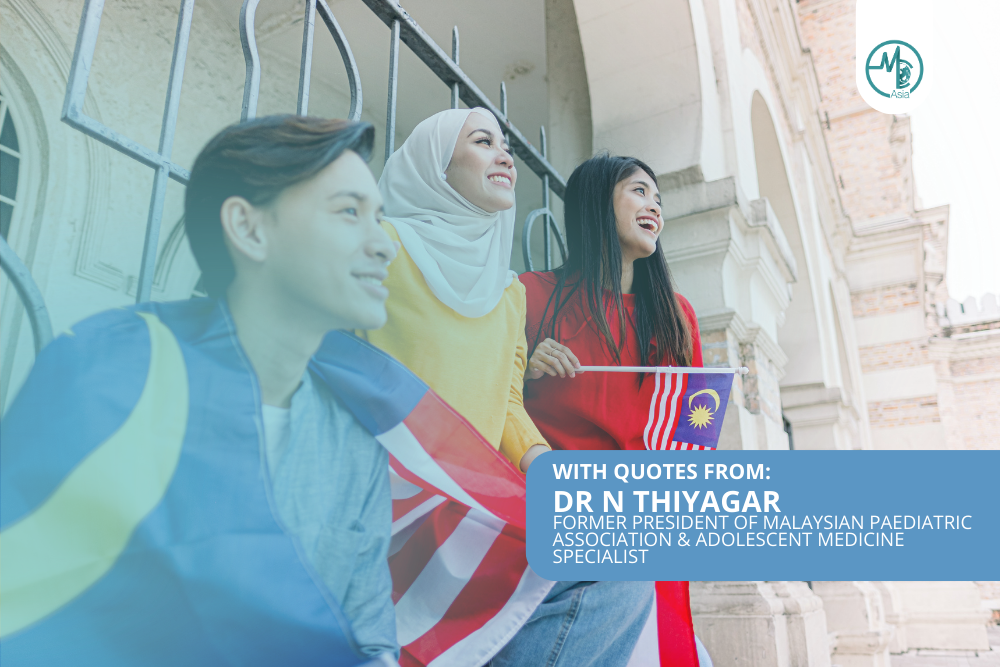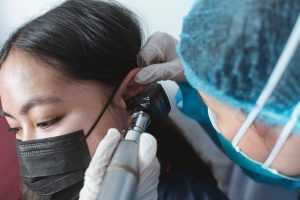The MOH is set to develop a mental health action plan for children and adolescents to tackle the rising number of mental health issues among them.
Health Minister Dr Zaliha Mustafa announced after attending the 2023 World Mental Day Celebration in Petaling Jaya. She expressed concern over a National Health and Morbidity Survey (NHMS) report which recorded a worrying number of 424,000 children with mental health issues over the past year.
Juvenile Mental Health
Juvenile mental health is highly complex and understudied. Adolescence is an important time to acquire social and emotional habits that contribute to a stable mental health. Physical, emotional and social changes can leave them susceptible to mental health issues.
Adolescents with mental health conditions tend to be particularly vulnerable to social exclusion, discrimination, learning difficulties and risk-taking behaviour.
The transition from a middle-income nation to a higher-income one, and increasing levels of stress accompanied by rapidly changing lifestyle and cultural values may have contributed to the prevalence of juvenile mental health issues for the past decade.
Should We Be Worried?
Yes, we should. According to the World Health Organisation (WHO), 1 in 7 (14%) of 10-19-year-olds experience mental health issues globally and remain largely unrecognised and untreated. Suicide is also noted to be the fourth leading cause of death among 15-29 year olds.
1 in 20 children in Malaysia aged 5 to 9 are estimated to have mental health issues, including developmental disorders. Studies have also shown that patients with anxiety, depression, schizophrenia, bipolar disorder and anorexia were much more likely to die from suicide than someone without said issues.
Factors Influencing Juvenile Mental Health
Adolescence is a vital period to adopt healthy lifestyle patterns, especially eating and sleeping well besides exercising regularly. Coping mechanisms, problem-solving skills and interpersonal skills also contribute to managing emotional growth.
A myriad of factors can affect a child’s mental health. The most common ones include:
- Poor living conditions
- Discrimination
- Poverty
- Abuse/ Trauma
- Social isolation
- Chronic illness
- Early loss of a significant loved one
- Family member(s) with mental health issues
It should be equally important also to acknowledge some of these facts below:
- Mental illness is not the fault of the patient
- Mental illness is not caused by character flaws or personal weakness
- Mental illness is usually not caused by one single event.
- Physical or ethnic traits do not cause mental illness.
Common Mental Health Issues Among Adolescents
The most common juvenile mental health issues include:
- Emotional disorders such as anxiety and depression
- Behavioural disorders such as attention deficit hyperactivity disorder (ADHD) and conduct disorder (destructive/ challenging behaviour)
- Eating disorders such as anorexia nervosa and bulimia nervosa
- Psychosis (hallucinations, delusions) usually manifests in late adolescence or early adulthood
- Suicide and self-harm
- Risk-taking behaviour such as substance abuse or unsafe sex
Doctor’s Insight
Dr. N. Thiyagar, a consultant paediatrician and adolescent medicine specialist, stated that depression, anxiety and behavioural disorders were some of the main causes of illness and disability among adolescents.
“The consequences of failing to address adolescent mental health conditions extend to adulthood, impairing both physical and mental health besides limiting opportunities to lead fulfilling lives,” said Dr. Thiyagar.
Dr Thiyagar, who was also the former president of the Malaysian Paediatric Association, added that teenage girls seem to have consistently higher rates of depression and mood-related issues when compared to teenage boys. He also attributed the major causes of mental health issues in the adolescent age group to:
- Biological factors
- Socio-environmental factors
- Child abuse
- Neglect
- Low self-esteem
- Social discrimination
- Poor relationship with peers
- Lack of affection
- Poverty
Dr. Thiyagar heads the paediatrics department at Hospital Sultanah Bahiyah, Alor Star and is also the Kedah state’s Consultant for Paediatric Services. He recently received the Asian Paediatrician Award by the Asia Pacific Paediatric Association.
Call for Action
Dr. Thiyagar emphasised the importance of positive parenting, school inclusiveness, and recognition of early warning signs of mental health issues were important to reduce mental disorders.
He also added that social skills training for both parents and children was equally important to develop problem-solving and interpersonal skills for prevention and better management of mental health issues that may arise.
Mental illness may not be apparent among children, teenagers or young adults. It is important to approach the situation delicately and always be ready to seek professional help.
Malaysians can now access various mental health-related services via the MyMinda module on the MySejahtera application. This application will give users access to mental health screenings, psychoeducational materials and psychosocial support services.












